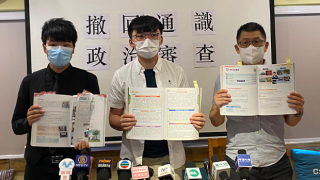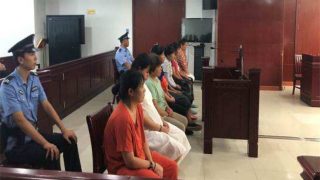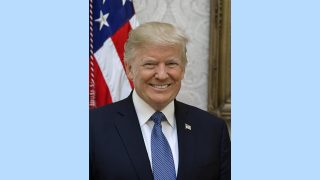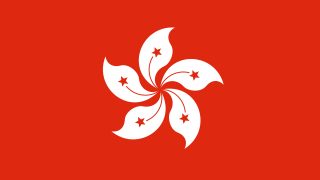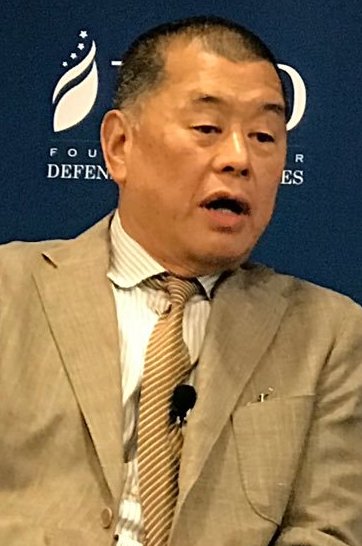
The arrest of pro-democracy media mogul Jimmy Lai and the high-profile police raid on the Apple Daily newspaper this week has stoked widespread fears of the end of Hong Kong as a flourishing city where information and opinions were freely aired.
Lai, 71, was one of ten people arrested Monday for violating the national security law imposed by China on July 1. Among them, two were his sons, four were senior executives at Lai’s Next Digital company, and three were activists, including 23-year-old Agnes Chow. Lai and Chow were released on bail late Tuesday.
Lai was held on charges including subversion and collusion with a foreign country, which are new offenses under the new national security law carrying a maximum sentence of life imprisonment. The legislation allows for people accused of breaching the law to be transferred to mainland courts for trial, where 99% of cases result in conviction.
Reporters said the high-profile raid, in which police officers rummaged through documents on their desks, left them feeling shocked, angry and humiliated.
“We thought they might arrest our boss someday, but no one expected 200 police officers rushing into our office and going through stuff on our desks,” said a journalist at the Apple Daily, who declined to be named.
Another journalist at the paper who returned to the office during the raid said she was “heartbroken” by the sight of a boss handcuffed and led away by the police and felt humiliated that police escorted her at every step. “I felt very upset and helpless but angry too,” she said.
Veteran media professionals say Apple Daily stands as a lone, critical voice among Hong Kong’s mainstream media outlets and say the authorities may close it down under the national security law. The attack on the newspaper is an indication that press freedom is no longer tolerated in Hong Kong, they say.
“Apple Daily is almost the only one among mainstream media outlets that is not afraid of antagonizing the Hong Kong or Chinese governments. Now it has become a lonely voice,” said Daisy Li, veteran journalist and chief editor at online media CitizenNews.
Since Hong Kong’s return to Chinese rule in 1997, press freedom has been gradually eroding, as media outlets become co-opted by the Chinese authorities through ownership or major stakes of mainland companies or businesses with strong ties to China.
Two television companies, NOW and Cable TV, well known for their independent reporting, recently had their head of news replaced, while respected public broadcaster RTHK has been put under government review after the removal of a 31-year-old satirical political comedy show.
“Apple Daily is an outspoken media whose reporting have often embarrassed the Beijing and Hong Kong authorities. It’s the bellwether of press freedom in Hong Kong,” said Bruce Lui, senior journalism lecturer at the Hong Kong Baptist University. “All kinds of opinions should co-exist when there is press freedom, and when there is no longer Apple Daily, it means the authorities no longer tolerate these voices and can silence them.”
Since the mainland state media characterize Apple Daily as a paper that engages in “collusion with foreign powers”, according to the national security law’s Clause 55 and 56, Lai risks being sent to China for trial, and could be given the maximum life imprisonment, Lui said.
The Chinese government’s opinions on Lai and his freewheeling paper could be gleaned from a statement from its Hong Kong and Macau Affairs Office. It called for the “severe punishment” of those who “collude with foreign forces” and “act as their agents” to harm national security by “secession, subversion and infiltration.”
The office accused Lai and his paper of being a mastermind behind protests in Hong Kong, using his media platforms to “fabricate and spread rumors and to incite and support violence,” and of providing financial support for anti-China and pro-independence forces.
Kenneth Chan, a political scientist at the Hong Kong Baptist University, said press freedom has long been Hong Kong’s asset and “an indispensable element” of the city’s comparative advantage over other countries in Asia.
“The raid on Apple Daily … can but tell the world that the government sees in press freedom in the context of a communist-style power struggle,” he said.
Despite the hardship, Hong Kong journalists insist they would not be cowed into silence. And members of the public have also shown overwhelming support for the Apple Daily. After the raid, the paper’s parent company Next Digital’s share price more than doubled on Monday and rocketed five times again the next day to reach a six-year high. Regardless of the arrests, the paper printed five times as many copies and newspapers sold out across Hong Kong on Tuesday.
Lai returned to his office on Wednesday, receiving a hero’s welcome from his applauding staff.
An Apple Daily journalist said he would not be surprised if the authorities closed the paper soon, but “most of our colleagues want to stay for as long as we can.”
“The future is difficult, but the spirit of defiance is alive and strong among Hong Kongers, including journalists. There will still be people willing to safeguard Hong Kong’s press freedom,” said Mak Yin Ting, former chairwoman of the Hong Kong Journalists Association.
Source: VOA
